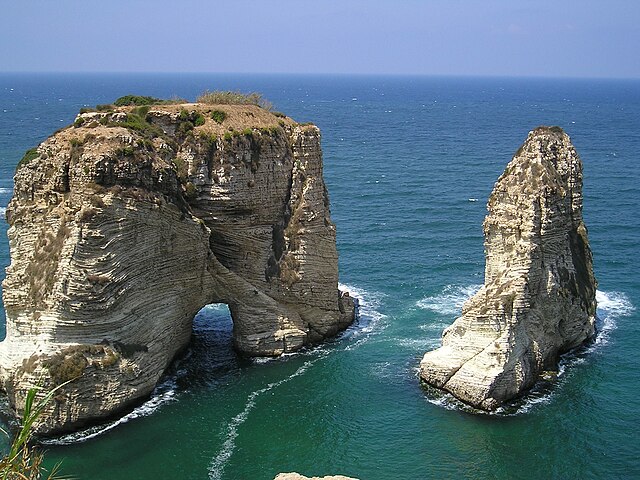Raouché (Arabic: الروشة, romanized: ar-Rawše) is a residential and commercial neighborhood in Beirut, Lebanon. It is known for its upscale apartment buildings, numerous restaurants, and cliff-side cafés that line Avenue de Paris, which forms part of the Corniche Beirut.

This article relies largely or entirely on a single source. (June 2018) |


Off the coast of Raouché, there is a natural landmark called the Pigeons' Rock (also known as the Rock of Raouché), consisting of two rock formations.[1]
Etymology

The word raouche comes from the French word “rocher”, which means rock.
History
The shores near Raouché have yielded the area's oldest evidence of human existence, flints and basic stone tools, which are displayed in the American University of Beirut Archaeological Museum.
Present status
The area adjacent to Raouché, called 'Dalieh', is presently in the process of being sold to real-estate developers.[2] A campaign was started early 2014 against the privatization of Raouché and the adjacent area-called al-Dalieh-which was initially titled "The last that remains".
Society and culture
Lebanese athlete Michel Haddad climbed 40 m up the Rock of Raouché to bring attention to marine pollution.[when?][3]
See also
References
Wikiwand in your browser!
Seamless Wikipedia browsing. On steroids.
Every time you click a link to Wikipedia, Wiktionary or Wikiquote in your browser's search results, it will show the modern Wikiwand interface.
Wikiwand extension is a five stars, simple, with minimum permission required to keep your browsing private, safe and transparent.
